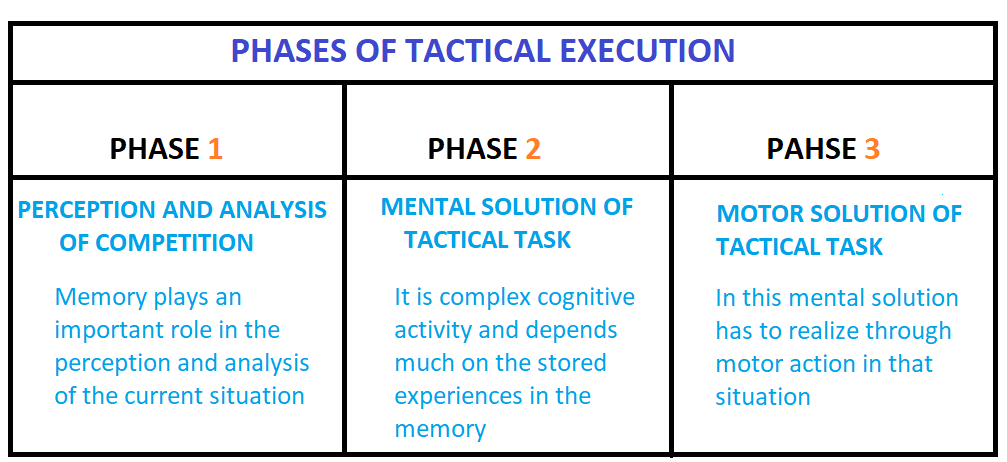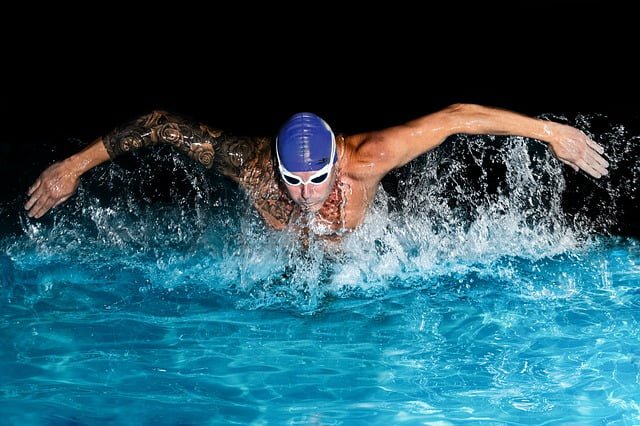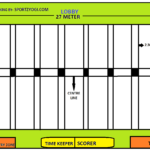What is tactics in sports?
What is tactics in sports- Tactics means the application of technical action against an opponent under a game-like situation. Tactics are the art of competing, nature and its type of tactical task are determined by the nature of competition in a sport. Tactics may aim at regulation of motor action or at regulation of movement, execution, or at the psychic state of an opponent or the official. The means of tactics may be motor action, gesture, behavior, or even language. Tactics may be used before or during the competition.
TACTICAL TRAINING- Tactical training or tactical preparation aims at enabling the sportsman to effectively organize for the competition, and to compete successfully.
What is tactics in sports
7 TYPES OF TACTICS USED IN SPORTS
THE BASIC TACTICAL CONCEPTION: – The basic purpose of using tactical actions during a competition is to win or to put up high sports performance. Depending upon the free prevailing circumstances during the competition, the sportsperson or the team resorts to the application of different tactical concept which is explained as follows:-
- OFFENSIVE FOR ATTACKING TACTICS:-In these tactical patterns the opponent is forced to accept his or her own plan of the competition. The sportsperson or the team on attack takes initiative and creates such circumstances that will allow the opponent to be taken in a favorable situation. An offensive basic position could also be to allow the opponent to attack and then counter very quickly without given an opportunity to the opponent to adjust to the new situation. Application of offensive tactics during competition is more advantageous and in comparison to other basic tactical conception and therefore during training adequate time should be devoted for acquiring their complete mastery.
- DEFENSIVE TACTICS:- In the tactical pattern of the sportsperson or the team limits entirely to defense and leaves the initiative of controlling the contest to the opponent to make mistake and then use this occasion for a counter in his or her favor.
- HIGH-PERFORMANCE TACTICS [RECORD TACTICS]:- The purpose of this tactic is to keep up intensities that are as high and as steady as possible. To apply this tactical conception effectively and successfully in the competition, the sportsperson has to be in a state of optimal physical and psychological preparation.
- GROUP TACTICS
- TEAM TACTICS
- INDIVIDUAL TACTICS
The above tactical conception is applicable in all the above games and sports. However, in individual sports their use is limited. To excel in the competition, in addition, to complete physical, technical, and psychological preparation, the sportsperson or team has to learn and master various tactical patterns.
Therefore, during training adequate time shall be spent on these important aspects in order to achieve optimum performance during competition.
READ MORE ABOUT- MEANING OF TECHNIQUES IN SPORTS TRAINING
WHAT ARE THE METHODS OF TACTICAL TRAINING?
The Three methods of tactical training are:–
- Tactical knowledge.
- Tactical skills.
- Tactical abilities.
TACTICAL KNOWLEDGE: – Tactical knowledge forms the basics of tactics. The sportsman must be given knowledge about the following things:-
- Rules and regulation of the game or sports knowledge about the tactical concept of game and sports.
- They should also know when and where a particular technique should be used to get the best tactical advantages.
- A sportsman must master the special technique or tactical rules or fundamentals of games and sports.
- It’s important for the sportsman to fully understand the interrelationship among fitness, skills, tactics, and psychic factors for successful participation in a competition.
- He/she should know in which way and to what extent the judges/umpires, spectators, can be impressed by his/her performance.
- A sportsman must learn to observe and analyze his/her tactical behavior as well as the behavior of another sportsman.
- Last but not the least; a sportsperson must know how to organize the competition effectively.
What is tactics in sports- Tactics means the application of technical action against an opponent under a game-like situation.
TACTICAL SKILLS: – Tactical skill is automatized motor action aimed at a tactical task. These are highly automatizing motor actions. In sports, only the basic tactical actions should be acquired as highly automated.
- VARIATION OF TACTICAL SKILL: – There is the variation of a basic tactical skill. These are only semi-automatized, thereby enabling their variable applicability according to the competition situation.
- CREATIVE TACTICAL SKILL: – In sports, quite frequently the situation demand that the tactical action should be done in an entirely new manner. They are called creative tactical action as these are the product of creative are the hallmark of an outstanding sportsman or a sportsman.
- AUTOMATISATION OF ALL TECHNIQUE
- STRESS ON COORDINATIVE ABILITY
TACTICAL ABILITIES: – Tactical ability the capacity of the sportsman to apply his/her physical and psychic abilities, technical and tactical skills according to the competition, situation for effectively tackling a tactical task.
The three important psychic aspects of tactical action are:-
- SPECIAL ABILITIES OF PERCEPTION: – These are the abilities that enable the sportsman to have good orientation, differentiation of sensory input, and perception of the situation.
- SPECIAL INTELLECTUAL ABILITIES: – The abilities that the sportsman to correctly anticipate the situation and to think and decide quickly.
- SPECIAL VOLITIONAL AND EMOTIONAL ABILITIES: – The first two types of tactical abilities can’t be fully utilized without special violation and emotional abilities. { e.g. temperament, ability to control one’s emotion state }


PRINCIPLES OF TACTICAL PREPARATION
- UNITY OF THEORY AND PRACTICE – The tactical mastery is psychic in nature and not effectively trainable through physical exercises. Tactical training essential consists of a large amount of tactical work. e.g.:- lecture, discussion, explanation, etc. with the help of audio-visual and other teaching aids.
- OBSERVATION AND PERCEPTION OF TACTICAL TASK: – For a high level of tactical mastery, correct and quick observation and perception of the tactical situation and the task are of paramount importance through the proper and systematic use of theoretical and practical problems, the abilities and the skills of the sportsman should be developed for quick and correct observation and perception of competition situation.
- ORGANISATION FOR COMPETITION; – Tactical preparation must focus on the abilities, technique, knowledge, and skill of the sportsman to organize for the competition.
- FORMING COMPETITION PLAN: – The coach has to help the sportsman to learn and formulate the competition plan himself/herself on the basis of his/her tactical organization. It gives a sense of confidence and responsibility to the sportsman which is crucial for the competition
- COMPETITION QUALITIES: – The sportsman must possess not only the competition qualities plan but also the competition qualities such as violation, emotional, and cognitive plan under the competition condition.
- TACTICAL EVALUATION: – Each sportsman must know the meaning and the possibilities of correctly assessing the tactical behavior of himself or herself as well as others. The stress should teach the sportsman to assess and evaluate tactical behavior systematically for driving guidelines and conclusions for improving his or her tactical efficiency.
- CREATIVE SELF EFFORT: – Tactics is the product of creative self-effort. Every sportsman must always try to find new situations for old situations. The self-effort should not be limited to doing tactical exercises on the field but it must extend to acquiring new tactical knowledge development of mental and social skills needed for tactics.
PRINCIPLE OF PLAYING INDIVIDUAL AND GROUP TACTICS
During various game situations with applying individual and group tactics, the following principle may be taken into consideration in order to be more effective and successful in offense and defense.
- Orientation of situation and current decision making,
- Correct option of tactile aspects,
- Execution of tactics with variation,
- Accuracy in movement,
- Orientation of changing situation and adaptation,
What is tactics in sports
https://www.sportzyogi.com/meaning-of-technique-in-sports-training/





